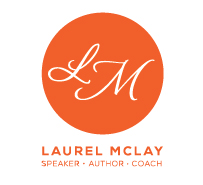Sure automation and Artificial Intelligence (AI) have been around for ages, but today, there is one big difference
Back in the late 1980s when I decided that I didn't want to be a land surveyor (I mean, what was I thinking? Not the best job for an extravert like me), I studied computer science and psychology, and used to go around saying that I was going to be an AI expert. Well two things prevented that happening;
1. I was about 20 years too early
2. I failed computer science abysmally (I mean writing a page of code to draw a line just wasn't fun)
We have been trying to get the machines to do our work for us for ages, but the difference now, is that robots are finally cost effective enough for us to consider using them.
I am now obsessed about this stuff!
Having the opportunity to go on The Paul Henry Show recently was of course a great move re my positioning (although being called a 'Brand Specialist', 'Image Mentor' and 'Employment Consultant' might not have been so helpful - click here if you want to see my appearance on the show last week around how NOT to scout for a job whilst still employed). But for me personally, there was another fabulous impact on my life. It got me to research more about the future of work and how automation is going to affect us ( of course, the seed was planted all those years ago). And what I have discovered has been staggering. Here are just a few examples of how things are going to change (and this won't be the last post on this!) - in this instance around distribution.
- Driverless cars are now a reality. Google have been using them for a while now, and last count at over 1 million miles driven, there were only two accidents (both caused by human error). Think about what this is going to do for taxi drivers (and panel beaters!) Click the image below to watch a short video for an amazing overview of what they have thought about!
- Drones will be able to deliver our parcels, reducing the need for couriers. Click the image below to watch a short video about Amazon's plans!
There is a bunch of other research available, including the idea that 3D printing will enable products to be manufactured onsite, again disrupting our traditional distribution model (the thing that worries me about 3D printing is the sheer volume of waste that could be created!).
Is this another one of my bright shiny object distractions?
I am still wondering if this is still a little pie (or pizza :-))in the sky. For example, when looking at drone delivery of pizzas, there is an article from 2013 then nothing since. I am certainly paying attention, and there are so many industries affected (think robotic concierges in Japan, and even front line military robots!). But we do have to think about the social impacts. For a sobering watch on teaching computers human values, watch this Ted Talk from Nick Bostrom, philosopher and technologist.
Definitely food for thought! What do you think, I would love to know!






























